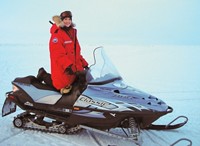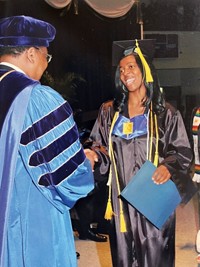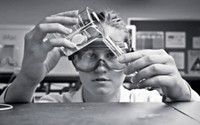Advertisement
Grab your lab coat. Let's get started
Welcome!
Welcome!
Create an account below to get 6 C&EN articles per month, receive newsletters and more - all free.
It seems this is your first time logging in online. Please enter the following information to continue.
As an ACS member you automatically get access to this site. All we need is few more details to create your reading experience.
Not you? Sign in with a different account.
Not you? Sign in with a different account.
ERROR 1
ERROR 1
ERROR 2
ERROR 2
ERROR 2
ERROR 2
ERROR 2
Password and Confirm password must match.
If you have an ACS member number, please enter it here so we can link this account to your membership. (optional)
ERROR 2
ACS values your privacy. By submitting your information, you are gaining access to C&EN and subscribing to our weekly newsletter. We use the information you provide to make your reading experience better, and we will never sell your data to third party members.
Profiles
Project SEED scholar Michelle Melo
Passionate about forensic science, this chemist got the job she always wanted
by Melissa Gilden
May 27, 2018
| A version of this story appeared in
Volume 96, Issue 22

Dun dun. Forensic scientists, the scientific army behind law enforcement, are featured on many popular TV shows, such as “Law & Order,” “Bones,” and “CSI: Crime Scene Investigation.” Michelle Melo didn’t need Hollywood to help her realize that was the career for her.
“I’ve known what I wanted to do since I was in the 11th grade,” she says.
Always a strong student with an interest in chemistry, Melo found out about the ACS Project SEED program from a high school guidance counselor. She was initially assigned to a biology-related lab at Florida International University, “doing some kind of research about bird blood,” and quickly found that it wasn’t quite her bag. Melo, who describes herself as more on the quiet end of the personality spectrum, made some calls to look for a new lab placement—something with a bigger emphasis on chemistry. “It was my first time standing up for myself,” she says.
Vitals
▸ Hometown: Miami
▸ Year in Project SEED: 2002
▸ Education: B.S., anthropology and chemistry, University of Miami; M.S., forensic science, University of Florida
▸ Current position: lead forensic scientist, Texas Department of Public Safety
▸ Advice for students: “Figure out what you want to do and what you really love.”
Melo found a new lab placement with FIU’s International Forensic Research Institute in the lab of José R. Almirall. She assisted then-graduate-student Shirly Montero with her research by measuring the refractive index on hundreds of glass samples. Melo had to go outside her comfort zone for this lab, too. “I had to make several calls to junkyard lots and ask them for different pieces of glass from automobiles for samples.” But she was just happy to be there, she says. “Anything they asked, I wouldn’t say no.” Her enthusiasm paid off, and the lab brought her back as an employee for another summer.

Melo continued on to the University of Miami, where she double majored in chemistry and anthropology, a perfect combination for a career in forensic science. She also kept busy by working in the chemistry stockroom and performing with the school’s dance team. College-level science was tough, but Project SEED helped prepare her, she says. Despite the challenging course work, she “never wavered in wanting to do something science related.”
Melo worked a couple of jobs, mostly doing chemical analysis and quality control, while completing her master’s in forensic science at the University of Florida. Luckily, it didn’t take long to find a job she’d been waiting for since high school. She was offered a position as a forensic scientist by the Texas Department of Public Safety, where she still works today as the team lead.
“I was so excited. It was a dream come true,” she says. Her first time far from home, she found herself enthusiastic yet homesick. But “it was everything I thought it would be,” she says.
When asked if her career resembles those depictions on screen, Melo is on the fence between “sort of” and “not really.” Most of the work she does is toxicological analysis for drug- and alcohol-related crimes, such as driving while intoxicated. She also works on sexual assaults and homicides. Melo says she enjoys what she does because “it’s a little different every day.” Her day can consist of anything from running screening or confirmation tests to testifying in court. “I love what I do, so it never feels like a chore,” she says.
Advertisement
She also trains law-enforcement officers on principles of toxicology, helping them understand why certain tests for drugs and alcohol are used. That part, she says, has helped her work on her confidence and public speaking, which never came naturally.
Melo credits a part of her success to her days in Project SEED. “I don’t know if I would have been so focused and determined and known exactly what I wanted to do had it not been for that experience,” she says. “I’m really lucky that I got to be a part of it.”





Join the conversation
Contact the reporter
Submit a Letter to the Editor for publication
Engage with us on Twitter